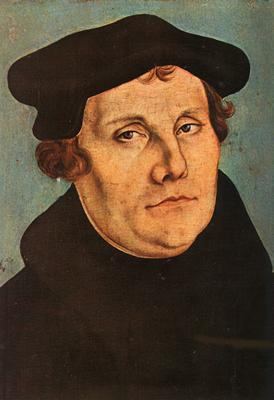Should Christians meditate or use Lectio Divina?
by Rob G.
(L.A. area)
Thanks for the excellent question. Christian meditation which is focused on the Bible is perfectly fine but No, we should not use pagan meditation or Lectio Divina in our attempt to be more spiritual. Christian meditation is radically different than the pagan forms of meditation so popular these days. God gave us the written scriptures so that we can differentiate truth from error. God expects Christians to judge spiritual practices by His written word in the Bible instead of by our emotions. Many Christians are led astray because they refuse to judge scripturally and instead, allow emotional reactions to rule their lives.
Many modern religious practices are not obedient to scripture rightly divided, 2 Timothy 2:15. Leaders lack spiritual discernment and therefore have introduced pagan practices into the church, sowing seeds of destruction. Contemplative meditation is one of those destructive practices.
Under the guise of helping us grow closer to God, we are asked to engage in a form of mystic meditation which empties our mind. It is sometimes called contemplative spirituality or mysticism. Mysticism is the opposite of sola scriptura. Mysticism attempts to go beyond what the Bible says. Mysticism is subjective instead of objective. Biblical meditation is not emptying the mind nor is it seeking higher knowledge than that found in the Bible.
Remember that the Bible never tells us to meditate by emptying our mind. Scriptural meditation is the opposite of emptying your mind. Emptying the mind and attempting to meditate while repeating a mantra is a pagan practice. It is never commanded, encouraged or recommended in scripture. It is pagan religiosity and therefore, unChristian.
Don't Try This At Home!
The contemplative prayer and meditation that has slithered into modern evangelicalism is not from God. It originates in false religion, sometimes called religious syncretism, which opposes God and Bible-based spirituality. Here are some of the unspiritual ancestors of the contemplative prayer and meditation movement, aka, spiritual formation.
- Hindus and Buddhists – Mantra meditation
- Muslim Sufis – Chanting and ritual dancing
- Judaism – Kabbalah
- Chinese and Japanese – Taoism
- Native Americans – Drumming, peyote ceremonies and vision quests
- Roman Catholics and many evangelicals – Contemplative prayer and spiritual formation
Martin Luther's Wisdom:
OF IDOLATRY CLXXI
"Idolatry is all manner of seeming holiness and worshipping, let these counterfeit spiritualities shine outwardly as glorious and fair as they may; in a word, all manner of devotion in those that would serve God without Christ the Mediator, his word and command.
In popedom it was held a work of the greatest sanctity for the monks to sit in their cells (solitude) and meditate of God (meditation), and of his wonderful works; to be kindled with zeal, kneeling on their knees, praying, and having their imaginary contemplations (contemplative prayer) of celestial objects, with such supposed devotion, that they wept for joy.
In these their conceits, they banished all desires and thoughts of women, and what else is temporal and evanescent. They seemed to meditate only of God, and of his wonderful works. Yet all these seeming holy actions of devotion, which the wit and wisdom of man holds to be angelical sanctity, are nothing else but works of the flesh.
All manner of religion, where people serve God without his Word and command, is simply idolatry, and the more holy and spiritual such a religion seems, the more hurtful and venomous it is; for it leads people away from the faith of Christ, and makes them rely and depend upon their own strength, works, and righteousness.
In like manner, all kinds of orders of monks, fasts, prayers, hairy shirts, the austerities of the Capuchins, who in popedome are held to be the most holy of all, are mere works of the flesh; for the monks hold they are holy, and shall be saved, not through Christ, whom they view as a severe and angry judge, but through the rules of their order.
No man can make the papists believe that the private mass is the greatest blaspheming of God, and the highest idolatry upon earth, an abomination the like to which has never been in Christendom since the time of the apostles; for they are blinded and hardened therein, so that their understanding and knowledge of God, and of all divine matters, is perverted and erroneous." Martin Luther, On Idolatry
Pagan mystical practices
never mentioned in the Bible
- Religious Syncretism - blending ancient pagan practices, Catholic mysticism, Eastern religious practices and new age philosophy with Christianity. It is always pitched as the path to greater spirituality, as if the Bible is not enough.
- Spiritual Formation movement - using mysticism, often from the Roman Catholic desert fathers, to allegedly draw near to God
- Spiritual Disciplines - using ancient Catholic monastic practices and new age ideas in an attempt to increase spirituality
- Monasticism - dwelling alone, the belief that separating yourself from society will help you become more spiritual
- Asceticism - practicing self-denial, denying fleshly comfort as a path to greater spirituality
- Ancient Future - celebrating the alleged wisdom of ancient civilizations and their approach to spirituality by mixing their pagan practices into Christianity
- Taize - ecumenical prayer focused on Christ through a Catholic prism which includes the false teaching of transubstantiation and it's ancillary false doctrines
- Centering Prayer - emphasizing interior silence, aka, meditation and rooted in the ascetic monasticism of the Roman Catholic desert fathers
- Lectio Divina - passive receptivity, a search via meditation for the allegorical meaning of scripture, contemplation by self-emptying to attain higher knowledge via meditation, which knowledge allegedly transcends the written text of scripture
- Jesus Prayer - a formulaic rote type of prayer, Matthew 6:7 (vain repetitions) which is alleged to be essential for spiritual growth. It goes like this: Lord Jesus Christ, Son of God, have mercy upon me, a sinner.
- Contemplative or Centering Prayer - silent and wordless prayer allegedly ushering one into Christ's presence. Since believers are already indwelt by the living Christ, Colossians 1:27, we are already in His presence; we are also already seated in heavenly places in Christ Jesus, Ephesians 2:6 and therefore, already in His presence
- Contemplative Spirituality - the pagan idea that true spiritual growth mainly occurs by contemplating and meditating on God to gain higher knowledge and higher spirituality, not by believing, reading, studying and obeying the Bible
- Labyrinth Walking - the labyrinth is viewed as an ancient spiritual tool, an aid to spiritual growth, used by our pagan ancestors and polished a bit to assimilate this pagan practice into modern christianity
- Walk To Emmaus - an outgrowth of the Roman Catholic cursillo movement, which originated as a way to keep Catholics from joining Protestant churches, now embraced by United Methodists, Lutherans, Episcopalians and adapted for their churches
- The Silence - just another aspect of all of the above, silence, emptying the mind, wordless prayer, attempting to get from God something other than what the Bible says and other than what He has already given us, Ephesians 1:3.
Do not be fooled!
It is better to read study believe memorize obey the Bible instead of wasting your time following these faux-spiritual dead ends which are never mentioned or recommended in the Bible. They are fleshly works and will not make you more spiritual, at least not in the Biblical and Christian sense. Stick with the Bible.
Return to 101 Community
Return to
Gay Christian 101 Home Page
Are deliverance ministries scriptural?
Martin Luther picture, painted in 1529 by
Lucas Cranach the Elder, 1472-1553,
the Hessisches Landesmuseum Darmstadt,
Germany, is in the public domain.



